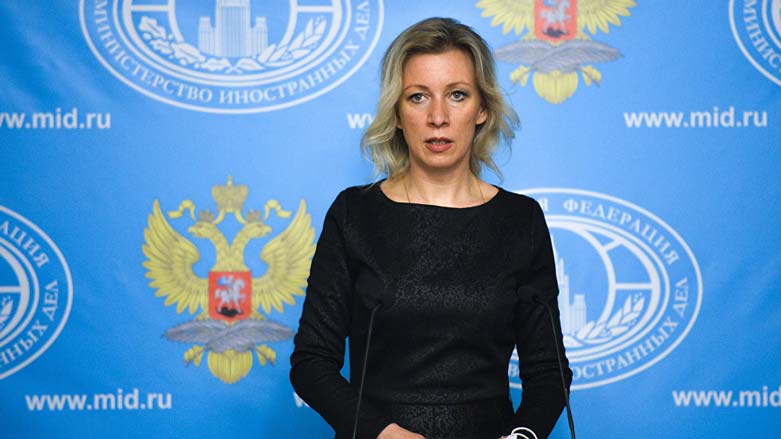Russia investigates chemical weapons use against Peshmerga

MOSCOW, Russia (Kurdistan24) – Russia will investigate alleged chemical weapons attacks against Kurdish Peshmerga forces in northern Iraq and the Kurdistan Region, a Russian official confirmed on Friday.
In a press conference, Russian Foreign Ministry spokesperson Maria Zakharova responded to a Kurdistan24 reporter's question regarding the use of chemical weapons used against Peshmerga forces.
“What result[s] shall we expect when such weapons fall into the hands of terrorist groups [Islamic State]? We definitely understand the threat of those weapons. We [Russia] have often emphasized in the United Nations Security Council that [the use of] those weapons must be prevented,” Zakharova told Kurdistan24.
Zakharova added that Russia will conduct further investigations concerning the alleged use of chemical weapons against Kurds.
Regarding delivering medical equipment and treating the wounded fighters affected by chemical weapons, Zakharova stated, “I will provide you more details when we conduct a more comprehensive investigation concerning these cases.”
Recently, Islamic State (IS) allegedly used chemical weapons against Peshmerga forces on the Makhmour front line southeast of Mosul.
Sarbast Lazgin, a representative to the Kurdistan Region's President Masoud Barzani and Peshmerga Commander in Sinjar (Shingal), told Kurdistan24 that IS attacked civilians in Shingal as well as Peshmerga front lines with mortar shells consisting of chemical substances on Feb. 26.
“These shell casings are full of poisoned gas...made by Da’esh,” Lazgin said, using the pejorative term for IS.
Kurdistan24 released an exclusive video of the second IS chemical attack on Peshmerga. Extremists targeted Shingal with nearly 30 chemical-laden rockets, leaving over 100 civilians and Peshmerga fighters injured and suffering from shortness of breath, nausea and other side effects.
Reporting by Khoshawi Mohammed and Mewan Dolamari
Editing by Benjamin Kweskin and Karzan Sulaivany
